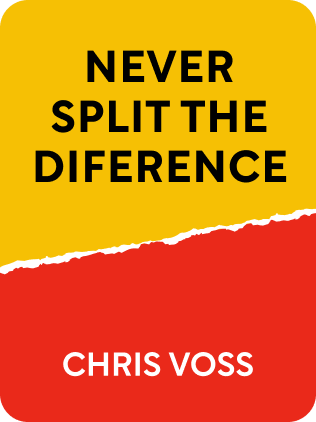

This article is an excerpt from the Shortform book guide to "Never Split the Difference" by Chris Voss and Tahl Raz. Shortform has the world's best summaries and analyses of books you should be reading.
Like this article? Sign up for a free trial here .
What is the Chris Voss accusation audit strategy? How can it help you get an upper hand in a negotiation?
According to Chris Voss, an accusation audit is a form of emotional labeling which involves labeling your counterpart’s negative emotions—but about you specifically. The aim of an accusation audit is to trigger empathy in your opponent and diffuse tension by putting it all out there in the open.
Read about the Chris Voss accusation audit strategy.
The Chris Voss Accusation Audit Strategy
According to Chris Voss, an accusation audit is a twist on emotional labeling which involves listing all of the negative things that your negotiating counterpart may be thinking or feeling about you.
List every bad thing your counterpart could say about you at the beginning of the negotiation. This defuses the situation immediately and puts it all right out there in the open.
This might sound like, “I know I didn’t hand in that sales report on time. You probably think I’m lazy, uncommitted, inattentive to detail, and that I don’t care about wasting your time or everybody else’s.”
Then, you ask for input based on that list. This is where the tactic really works its magic. Most of the self-accusations you’ve labeled sound ridiculous and even paranoid when you vocalize them one right after the other. You’ll actually trigger their innate human empathy by painting the worst possible picture of yourself to them: they’ll want to reassure you that you’re not as bad as you’ve portrayed yourself. The admissions and acknowledgments cause the other party to seek common ground.
Your counterpart might respond to the above accusation audit by saying, “OK look, I don’t think you’re lazy or that you don’t care. This was definitely a mistake but let’s try and fix it.” Right away, you’ve reset the negotiating dynamic. It’s all based in the basic psychological need that all humans have for empathy and connection: we all have an inherent need to forge some kind of connection to the person across the table. Through an accusation audit, you’ve forced them to make the next move in building that empathy.
We actually do this intuitively all the time. Anytime you preface a critique of someone with “I don’t want to sound harsh, but…” you’re doing an accusation audit. You’re priming them to think and respond, “No, you’re not being harsh.” This makes them empathize with you: you’re making them concerned about your guilt at being harsh rather than the critique you’re actually delivering.

———End of Preview———
Like what you just read? Read the rest of the world's best book summary and analysis of Chris Voss and Tahl Raz's "Never Split the Difference" at Shortform .
Here's what you'll find in our full Never Split the Difference summary :
- Lessons learned from years as an FBI hostage negotiator
- Why negotiation is about emotional appeals, not rational ones
- The 5 methods for tactical empathy, which gets you what you want by focusing on the other person's feelings






